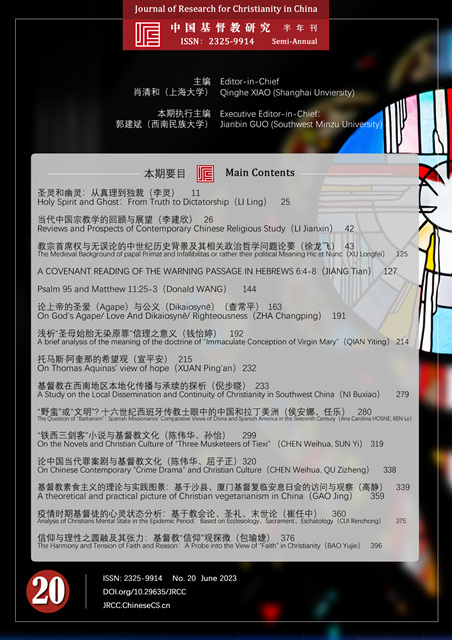Abstract
This paper takes Thomas Aquinas' view of hope as the researching object. Firstly, this paper analyzes the problem of hope from the perspective of religious study and the history of philosophy. From the viewpoint of religious study, hope reflects different comprehensions of ultimate reality and self. From the perspective of the history of philosophy, especially from Greek philosophy to modern philosophy, there is a debate on whether hope is consistent with reason, and whether hope will interfere with people's understanding of reality. Secondly, this paper is divided into three parts to analyze Aquinas' view of hope: firstly, it discusses hope and theological hope, the former’s agent is irascibility, the latter’s is reason, so hope as a theological virtue is consistent with reason; To Aquinas, fear and hope are complementary, and filial fear can elevate theological hope to charity, which is a major feature of Aquinas' view of hope. As for despair and presumption, the defect of both lies not in general reason but in the inability to apply reason to a particular situation. Finally, this paper concludes that Aquinas' view of hope has a characteristic of reconciling reason and faith, it’s instructive to reality and thus answers the question of hope in the history of philosophy.

This work is licensed under a Creative Commons Attribution-NonCommercial-NoDerivatives 4.0 International License.
Copyright (c) 2023 Journal of Research for Christianity in China (JRCC)
